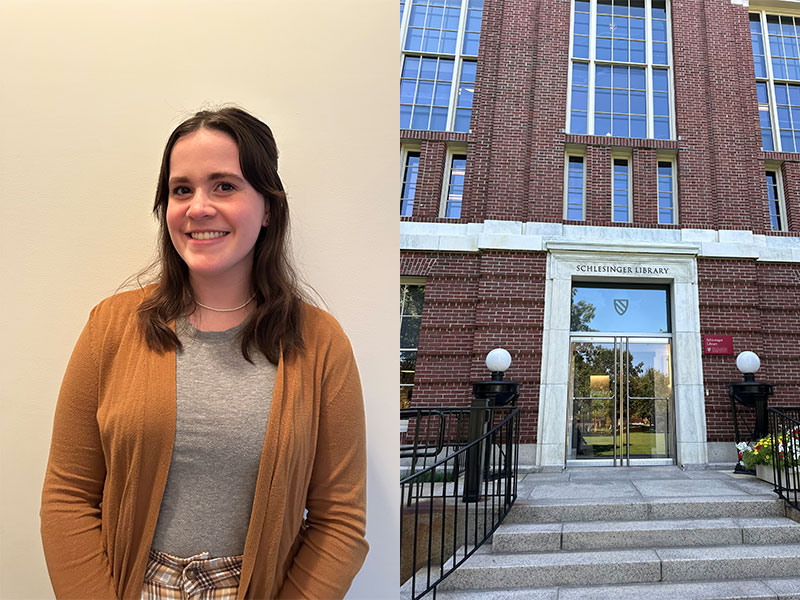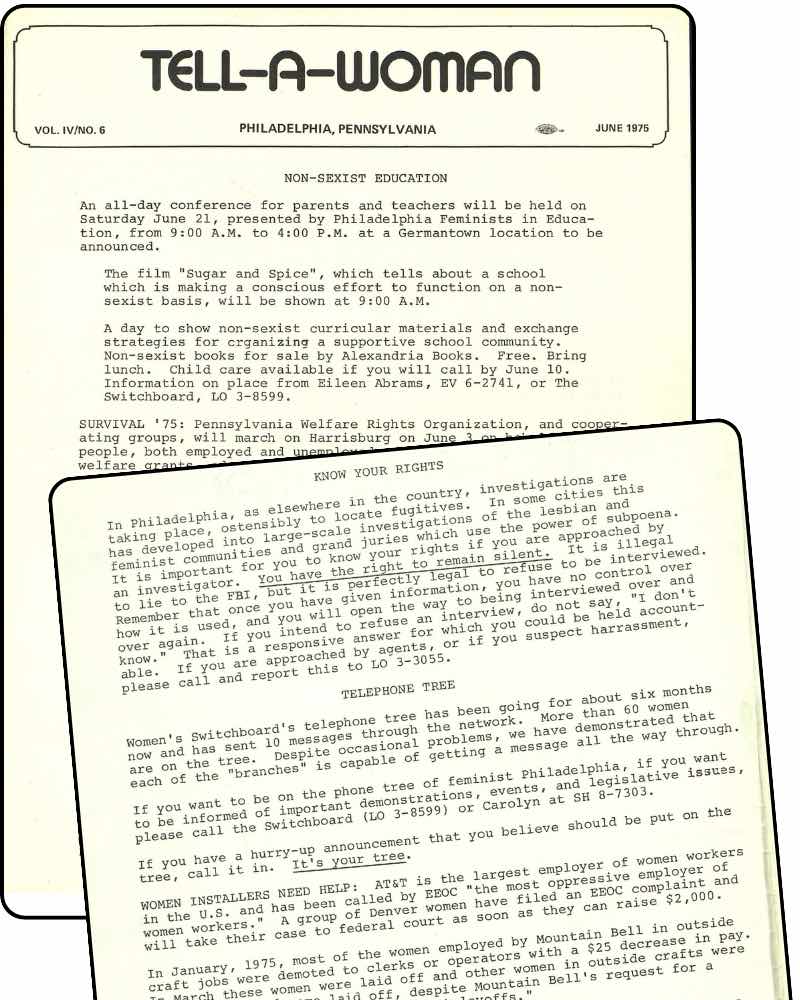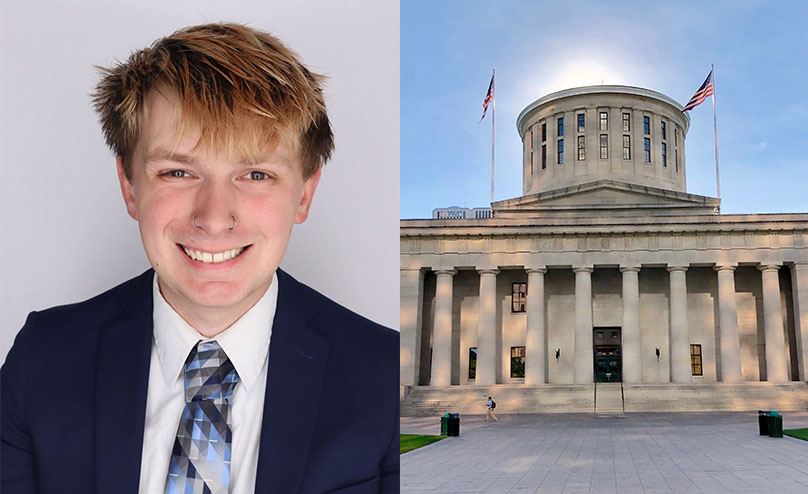Senior History major sheds light on technology and its effects on feminism
Lauryn Zilles ‘23 explores the impact of past and present technology within current and second-wave feminist movements.

Senior History major sheds light on technology and its effects on feminism
Lauryn Zilles, a senior majoring in History and minoring in both Political Science and Social Justice and Inequalities, has always been passionate about women and gender history. When she was given the opportunity through the History Honors Thesis program at Miami to conduct research, she knew that she wanted to use her interest to her advantage.
Zilles took a course, entitled “MeToo,” by Chamberlin Family Professor of History and American Studies Kimberly Hamlin, who became her research advisor. In that course she read an article about the organization 9to5, the National Association of Working Women, which was founded in 1973.
“They basically had this job survival hotline that women could call anonymously if they were experiencing sexual harassment or discrimination in the workplace,” Zilles said. “It was one of my favorite articles I've ever read.”
With this in mind, she decided to base her research on a recent cultural shift, the Women’s Liberation Movement (WLM) of the 1960s and 1970s. Thinking back to Hamlin’s class, she focused her attention on how the role of technology like the landline telephone changed from then to now across “three different layers” of the WLM:
- The 9to5 National Association of Working Women
- The Jane Collection, an underground abortion clinic in Chicago that ran between the 1960s and 1970s, when abortion was illegal
- Other national and local women’s organizations, such as those in Zilles’ hometown of Dayton, which she used as a case study to see how the telephone worked within local institutions
All three of these segments are currently playing a large role in Zilles’ research.
“There was a newsletter I found from Philadelphia that talked about Tell-a-Woman, which was this whole telephone tree,” she said. “So I was looking at it from a national angle, and I was also able to go visit archives at Wright State University over the summer.”
 Sample pages from the Tell-a-Woman newsletter, June 1975.
Sample pages from the Tell-a-Woman newsletter, June 1975.
The Tell-a-Woman newsletter connected isolated women in Philadelphia, especially those who were mothers, differently-abled, low-income, or incarcerated, to provide and maintain a safe space and support and direct them to women’s organizations. This was represented by a telephone tree.
Zilles was also given the opportunity to interview Kathy McMahon-Klosterman and Joanne McQueen, two of the leaders in Oxford’s liberation movement in the 70s. She received their input on technology’s correspondence to feminism to include a more local aspect to her research and supplement the national angle she was presenting.
“I went over to their house, I had tea with them. It was very lovely,” said Zilles.
She added that she also visited several libraries such as Oxford’s Lane Library in order to get a more local feel for how landlines were used at the time.
“The telephone has a very interesting history because it's been largely gendered over the years,” Zilles said. “Women have always been associated with the telephone. It's like the idea that women are just gossiping when they're on their phones, and their husbands are going to work. But they were actually talking about important matters and organizing.”
Zilles received funding for her project, “Research Surrounding Technology and the Second Wave Feminism Movement,” from Miami’s University Summer Scholars program and Department of History. This enabled her to go to the Schlesinger Library in Massachusetts, part of the Harvard Radcliffe Institute, to gather more information as she writes her thesis.
Zilles hopes to attend law school at some point after graduation. She believes that her research will help people to see that all people are the same in wanting to make a difference and that the tools that help us get there are incredibly important.
“I think research is a super cool thing that we get to do as undergraduates, and Miami has a lot of cool opportunities to do so,” Zilles said. “If you’re interested, I would say do it for sure – and even if you're unsure, if there's like an ounce of you that wants to do it, just do it!”
